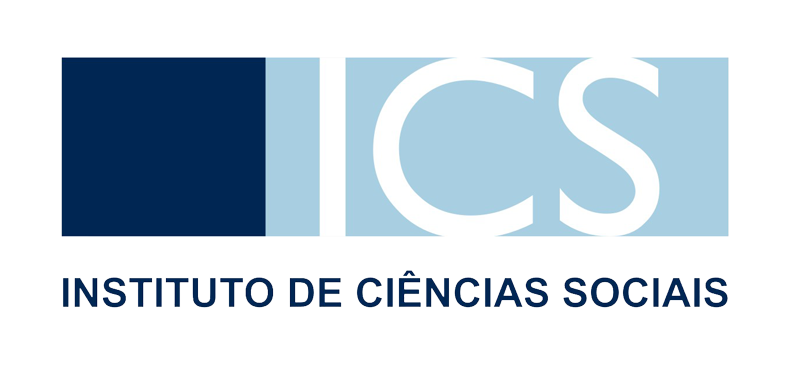
New anthropological horizons in and beyond Europe
21-24 July 2020 in Lisbon
ISCTE-University Institute of Lisbon and ICS-Institute of Social Sciences, University of Lisbon
About Lisbon
In 1620, Nicolao d'Oliveira explained that Lisbon, the principal city and head of the Kingdom of Portugal, was "more populated than all other cities of Europe". Oliveira emphasized the "very healthy, mild air" of Lisbon, and vividly described the wide variety of goods that arrived in the city from India, Iran, Brazil, Ethiopia and Arabia. Only five years later, in 1625, António Coelho Gasco called Lisbon a "princess", "imperial lady" and "Emporium of commerce", and also indicated that "all the peoples of the world, even the most remote" travelled to Lisbon.
These words may inspire the visitor to discover the real city that lies behind the imperial rhetoric and Eurocentric view of the foreign peoples and goods that arrived to Lisbon, as well as, of course, behind the ghostly heritage of the 1755 earthquake, which resulted in the complete reconstruction of "Baixa", in a new, "enlightened" fashion. Lisbon was one of the first true world cities and still is a very cosmopolitan one.
We invite you to explore World Heritage architectural marvels, the Jerónimos Monastery and Belém Tower, with their intricate carvings showcasing all the glory and excitement of the Age of Exploration, and to discover the treasures from the East and the West inside the world-class Calouste Gulbenkian Museum, Museu Nacional de Arte Antiga, Fundação Oriente, Museu Nacional do Azulejo, or the acclaimed Design Museum (MUDE) and the Berardo Museum of Contemporary Art. The city's legendary seven hills will also seduce you with their characteristic mosaic pavements and dazzling tiled façades, and will reward you with strategically-placed viewpoints offering breathtaking panoramas over the city after a ride on a charming old tram (don't miss No. 25 and 28)
You'll find yourself wandering through colourful 18th-century squares downtown and getting lost in the medieval maze of the Alfama district overlooked by an ancient (reconstructed) castle. Follow that with a dive into the spectacular Oceanarium and spend your nights indulging in the city's gastronomic delights, listening to the sounds of Fado, or bar-hopping through the cobbled alleys of the shabby-chic Bairro Alto district. You're sure to become mesmerized by Lisbon's wonderful mix of the old-fashioned and the hip; of the historic and the modern, but you'll also want to go outside the city to the fairy-tale town of Sintra and to the cosmopolitan shores of Cascais and Estoril.
Lisbon is a popular travel destination and the EASA2020 conference takes place during the high season. While accommodation options have proliferated in the past few years, it would still be wise to book early. Find more information about accommodation options here.
Practical tips
- Tapwater is safe to drink.
- City is safe and multicultural. But as in every major urban centre, be careful of pickpoceting
- You might meet drug trafficker trying to sell you 'cannabis' on the streets. While Portugal has quite liberal drug laws, drugs in Portugal are still illegal and buying 'drugs' from a street peddler is not safe.
- Bring sun screen and hats - July is hot and dry.
- Beaches:
- Cascais coast - closer, accessible by train (from Cais do Sodré)
- Costa de Caparica - nicer beach, further away, accessible with Uber or taxi. Can be reached also by bus (see explanation here)
- Typical hours for eating are from 12:00 to 14:00 and in the evenings 19:30 to 21:00. Getting service after regular hours might be tricky.
- Taxis are cheap, but be mindful if taking a taxi from airport - if you wish to avoid the hassle you can walk from airport or take a metro, Uber is widely used.
- If you have health issues or questions call SNS24 hotline 808 24 24 24 and choose option 9 for English.
- Many small businesses do not accept bank/credit cards, because the rising bank fees. Have cash handy.
Business hours
Opening hours for shops and businesses across Portugal are usually 9.30am to 7.30pm, Monday to Saturday. Malls close late (11pm or 12am) daily.
Cafés tend to open from 8am or 9am until 8pm daily; restaurants 12am-3pm and 7-10pm daily; banks 8.30am to 3pm (Monday to Friday); pharmacies 9am to 8pm, Monday to Friday; and supermarkets 9.30am to 8.30pm daily.
Please read more about how to get to Lisbon here
Transport and nightlife
Lisbon districts
Baixa: broad squares, 18th-century architecture, patterned pavements, popular cafés
Bairro Alto & Chiado: vibrant nightlife, picturesque streets, classic and alternative culture, chic shopping, restaurants
Belém: the Age of Discovery, grandiose monuments, museums
Alfama: medieval maze, spectacular views, an imposing castle, the sounds of Fado
Uptown: masterpieces and museum treasures, shopping malls
Parque das Nações: the 21st century by the Tagus; futuristic architecture
Taxis
Taxis are a good way of getting around. Lisbon taxis are cheap. Taxi fares are calculated on the basis of an initial flat charge, currently €3.25. If luggage is carried (bigger than 55x35x20cm) a further 1.6€ is charged. The call-out is charged at 0.80€.
From the airport to most locations in central Lisbon should not cost more than €12 plus any baggage and call-out charges. Meters are displayed in all licensed taxis so the fare should not come as a shock. Tips are voluntary: 10% is the norm.
Lisbon local taxis charge 20% more after 10pm and on weekends (using Rate 2 rather than Rate 1). The fare outside of the city is calculated on a km basis upon leaving the city limits, about €0.47/km, and any motorway/bridge tolls are paid by the client. When taking a cab, try to enquire about the price to your destination first. Save your receipt and check if the license plate matches the receipt details. See if the meter is running and rate code is correct.
Autocoope - Taxis de Lisboa: +351 217 932 756 (http://www.taxislisboa.com/)
GEOTAXI: +351 218 444 400
Taxis 7C: +351 934 959 169 / +351 966 346 030
Taxitours + 351 964 120 673 (http://www.taxitours.com.pt)
Rádio-táxis de Lisboa: +351 218 119 000
Taxi apps have been slow to catch on in Lisbon, but 99Taxis (www.99taxis.com), MyTaxi (www.pt.mytaxi.com) and Uber (www.uber.com) are available.
Metro - Metropolitano de Lisboa
This is one of the easiest ways to get around Lisbon. Accessible and relatively cheap, the metro has four main lines: - yellow (Rato - Odivelas) - green (Cais-do-Sodré - Telheiras) - blue (Santa Apolónia - Reboleira) - red (S. Sebastião - Aeroporto)
NB: the stations closest to the conference venue are Cidade Universitária (yellow line), Campo Grande (green and yellow line) or Entre Campos (yellow line).
Ticket
Before hopping on the metro you must buy an electronic ticket, Viva Viagem, and charge it up (minimum charge €5). The card itself costs 50 cents and can be bought at the ticket office or using the vending machines. Upon charging the card, keep the receipt as it may be useful if you need to change a damaged card. A ticket exclusively for the metro can only be charged up to €20. You can check your card balance using the machines, choosing the option 'carregamento/leitura'.
Tip: recharge your card with the approximate number of trips in mind, as you get a small bonus each time you charge it with more than €5.
A single ticket costs €1.50 and is valid for one journey, after validation, throughout the metro. A one-day ticket Carris/Metro costs €6.40 and is valid for an unlimited number of journeys throughout the Carris and Metro networks for 24 hours after validation.
You can find out more information via the Metro website (Eng version).
Hours
The first metros leave 06:30 from the terminal stations of each line; the last metros leave at 01:00 from the terminal stations of each line.
Closest metro and train stations to conference venue
Metrostation:
+ Entre Campos (yellow line)
+ Cidade Universitária (yellow line)
+ Campo Grande (green and yellow line)
Entrecampos train station:
+ Linha da Azambuja
+ Roma-Areeiro - Setúbal
+ Linha de Sintra
Bars & Restaurants near the University
Typical hours for eating are from 12:00 to 14:00 and in the evenings 19:30 to 21:00.
Pastelaria / Restaurante Pato Real
Av. de Berna 37, 1050-038 Lisboa, tel: + 351 217971443
Oasis restaurante vegetariano
Rua Marquês Sá da Bandeira 76, 1050-167 Lisboa, tel: +351 218095457
Oh! Lacerda
Av. de Berna 36
Laurentina, O rei do Bacalhau
Av. Conde Valbom 71A, 1050-067 Lisboa, tel: +351 217960260
Ararate restaurante arménio
Av. Conde Valbom 70, 1050-099 Lisboa, tel: +351 925451509
Nightlife
Traditionally, the centre of Lisbon’s nightlife has been the Bairro Alto, with its fado clubs, traditional, canteen-style bars, and upscale discos. In the past year, the requalification of the riverside quarter of Cais-do-Sodré led to its rebirth as a nightlife centre – currently the most trendy - with a large spectrum of bars, tascas (traditional eating places) and clubs. The bars are often open as late as 2am and the clubs from 4am to 6am. Much of the action also moves onto the Docas (Docks) district, situated just to the east of Ponte 25 de Abril (bridge). But don't rule out other districts such as 24 de Julho, Alfama, Bica, Parque das Nações (Expo).
10 nightlife possibilities
Club Lux (Av. Infante D. Henrique, Armazém A, Cais da Pedra a Sta Apolónia, 1950-376): partly owned by John Malkovich, this is hailed as “the city’s most stylish club” for the design, the crowd and the music.
Club MusicBox (R. Nova do Carvalho 24, 1200-014): in Cais do Sodré, one of the city’s live music hotspots, hosting both Portuguese and international artists as well as regular DJ sets (rock, dance, hip-hop or reggae). Drinks are expensive, but totally worth the atmosphere.
Clube Ferroviário (Railway Club - Rua de Santa Apolónia 59-63, 1100-468): near Santa Apolónia train station, a club with an amazing view of the Tagus River from the rooftop terrace. The club is spacious, the downstairs halls have live music and /or DJs playing and the rooftop terrace offers tapas and drinks and various entertainment.
Bairro Alto bar hop: Lisbon’s lively street party. Check out Majong – usually so crowded most people stand outside in front of it.
Docas: located at the old docks next to the 'Ponte 25 de Abril' bridge along the river in Alcântara between Baixa and Belém, this area is full of trendy cosmopolitan restaurants and bars.
Hot Club Portugal (Praça da Alegria, 48): one of the oldest and best jazz clubs in Europe
Chapitô (Costa do Castelo 7, 1149-079): Located near downtown (Rossio), on the hill of the Saint George castle, Chapitô offers a breathless panoramic view over Alfama and the river. Drink among young artists (Chapitô is divided into bar, restaurant, discotheque, bibliothèque, theater, training school) and enjoy the best night-time city views at this restaurant-bar.
Incógnito (Rua dos Poiais de São Bento 37): An established 'alternative dance bar', Incógnito offers a discerning mix of music from across the indie-rock-dance spectrum. You need to ring the doorbell to get in!
Senhor Vinho (Rua do Melo a Lapa 18, 1200-723): the city's best Fado House
Solar do Vinho do Porto (R. São Pedro de Alcântara 45, 1250-237): sample the country's famous wine
Calouste Gulbenkian Foundation (Av. de Berna 45 A, 1067-001): world-class classical music program
Op Art (Doca de Alcântara): One of the most famous night clubs at Docas (music played is mostly electro and house), where you can watch the sun rise to the sound of music.
Useful links
Timeout Lisbon: http://timeout.sapo.pt/
Agenda Cultural de Lisboa: http://agendalx.pt/cgi-bin/iportal_agendalx/
goLisbon: http://www.golisbon.com/night-life
Lisbon Guide: http://www.lisbon-guide.info
Turismo de Lisboa: žhttp://www.visitlisboa.com/Home_UK.aspx?lang=en-GB
Time Out Lisbon: http://timeout.sapo.pt
tipsguidelisboa: http://www.tipsguidelisboa.com
Any queries with the above please email conference(at)easaonline.org.











